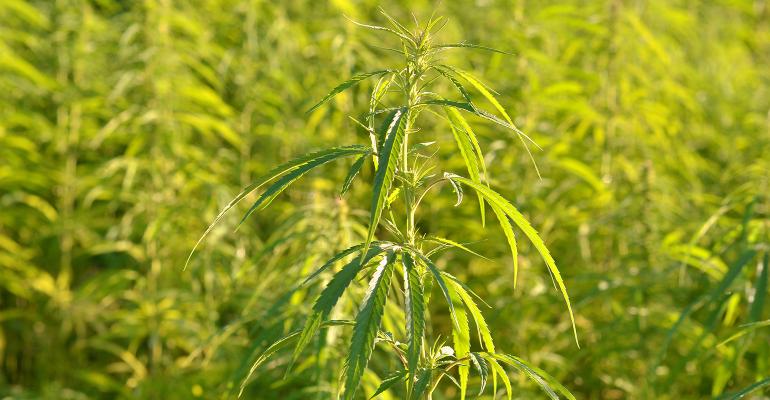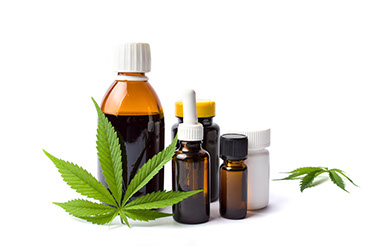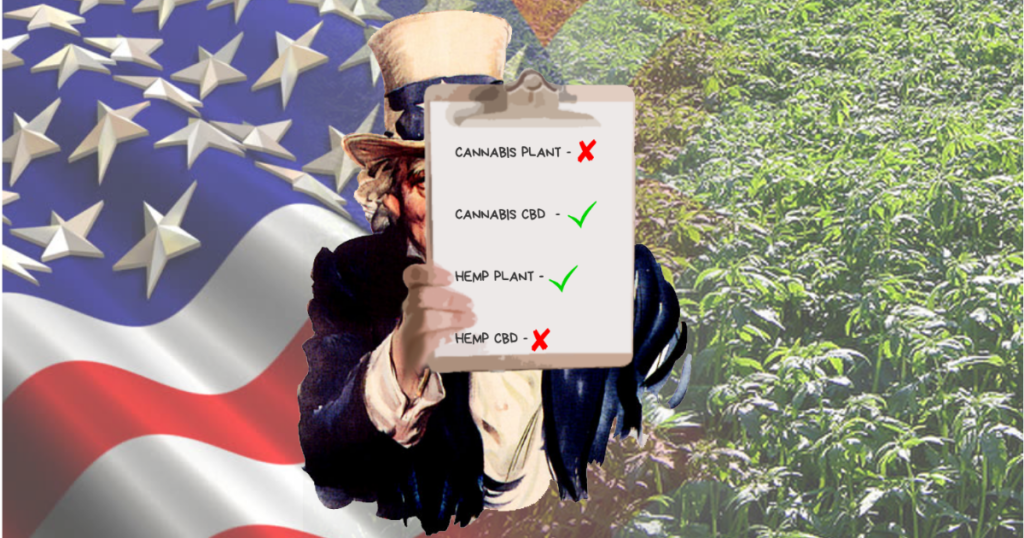
Scott Gottlieb has sat at the head of the federal Food and Drug Administration (FDA) since 2017. In that time he has taken a loud stance against e-cigarettes and vaping, particularly among teenagers, while quietly approving the high priced and highly controversial, cannabis-derived Epidiolex anti-seizure medication, as well as an extremely powerful sublingual opioid (Dsuvia) in the midst of the most widespread opioid abuse crisis in history.
Gottlieb is defending his decision to greenlight Dsuvia by arguing that it will fill a role for very specific patient needs, which by the way is the exact reasoning we were given about drugs like oxycodone and fentanyl at the beginning of the epidemic we now find ourselves in.
Regarding cannabis, in November of last year Gottlieb said in a CNBC interview, “We have approved compounds derived from marijuana but there is no demonstrated medical use for botanical marijuana.”
One month later, the 2018 Farm Bill was passed in a rare act of bipartisanship in the nation’s capital.
Clearly stated in the bill was language removing the hemp plant from the federal Controlled Substances Act completely, ending decades of senseless prohibition against a harmless and regenerative plant with hundreds of applications.
Just not every part of that plant, it turns out.

The new law of the land defines hemp as any cannabis plant that contains less than 0.3% THC, the compound in cannabis that is most commonly associated with getting baked.
Most hemp strains are naturally low in THC already, but many contain higher concentrations of Cannabidiol, or CBD, a compound of the cannabis plant known for its healing characteristics rather than any psychoactive effects.
Much like the cannabis scene in many parts of the country, intrepid entrepreneurs have been manufacturing and selling hemp-derived CBD products in everything from garage operations to major manufacturing facilities for years, lurking in the grey area between legality and priority of enforcement by local authorities and the Feds.
Now, suddenly, both hemp and cannabis have been thrust to the forefront of political debates and watercooler chats at the office, and while the implementation of legal cannabis has been a bit of a shit show in some parts of the country *cough*California*cough* even more confusion surrounds hemp-derived CBD.
The 2018 Farm Bill transferred authority of the hemp plant from the Justice Department and DEA over to the U.S. Department of Agriculture.
Sure enough, you can search Schedules I-V of the DOJ’s Controlled Substances Act and you’ll find ‘marihuana’ and ‘marihuana extracts’ still sitting unfairly on Schedule I, and you’ll find a mention of the word ‘cannabidiol’ in the niche they carved out for GW Pharma and Epidiolex on Schedule V – but even that specifically says it must be “derived from cannabis”.
What you will not find are any mentions of the word ‘hemp’ or the most commonly used acronym of ‘CBD’, and this just added to people’s interpretation that hemp-derived CBD was now totally free of federal oversight.

The reality is, CBD is on the verge of becoming a multibillion dollar industry and to think the Feds are going to not jam their hands into it was shortsighted. In fact, the same day that the 2018 Farm Bill passed, Gottlieb and the FDA issued a memo reiterating their stance that they still hold authority over hemp-derived-CBD infused foods and cosmetics and that such products are still subject to their oversight or are otherwise illegal to manufacture and sell.
To date, the only CBD product that the FDA has approved is Epidiolex, for $32,500 per year.
More confusion ensued as Americans were watching CBD stores popping up in their own hometowns, were seeing it pop up as suggested products on Amazon, and were witnessing it appearing as a hip new ingredient at their local bistro.
The Commerce Clause of the U.S. Constitution gives the FDA jurisdiction over interstate commerce, but not over intrastate commerce, or business happening within a state’s borders.
This adds more confusion, and adds little comfort for companies hoping that their state is too broke to come after them, or too proud to open the door for the Feds to do so.
In Oklahoma, two men transporting nine tons of hemp plant matter via an enclosed truck were pulled over by local police for allegedly failing to come to a complete stop at a signal. The Pawhuska Police officers on the scene got busy considering designs for their eventual statues in the town center thinking they had busted a nine ton haul of actual illegal weed.
The traffic stop happened in January, well after the 2018 Farm Bill was signed, but obviously before the Feds could properly regulate hemp or instruct states on how to do so. Now, months later, all charges have been dropped against the two men as the cops had to admit they were duped.
Despite the FDA trying to pump the brakes on state-to-state CBD biz, the U.S. Postal Service released an internal memo that was leaked to the public revealing that the nation’s largest mail carrier is preparing for inevitable legality of CBD products and is beginning to train their employees on how to recognize and handle such packages.
TOO BIG TO FAIL?
Under some pretty intense pressure from both his right and left political flanks, Gottlieb announced that the FDA would provide some clarity on their stance and intent with regard to hemp-derived CBD by this summer.
Then he suddenly announced that he was retiring to “spend more time with his family”.
And now, with one foot out the door, he is saying that without action from Congress, the FDA will take “years” to sort out the legal framework around CBD-infused products.
In his latest statements, Gottlieb bizarrely states that he believes the DEA will need to “formally de-schedule” hemp-derived CBD, and that they can only do so by an order from Congress.
Either we are missing something or he is because not only can you not find the word ‘hemp’ anywhere on the five schedules of the Controlled Substances Act, but the DEA no longer has any authority whatsoever over the hemp plant – or any cannabis plant with less than 0.3% THC for that matter. That power is now vested in the FDA and USDA.
So, apparently, even the FDA chief is perplexed.
So who will take his place when he steps down?
That duty has fallen on a man named Norman (Ned) Sharpless, the current director of the National Cancer Institute (NCI) and frontrunner for Gottlieb’s position.
As the head of the NCI, Sharpless must at least somewhat agree with the agency’s website claim that, “cannabis has been used for medicinal purposes for thousands of years…” and that it has been “promoted for reported analgesic, sedative, anti-inflammatory, antispasmodic, and anticonvulsant effects.”
The NCI site even reminds us that physicians and doctors were the most outspoken opponents of the Marihuana Tax Act 1937 which became a pivotal moment in cannabis prohibition history.
The benefits of both THC and CBD realized by countless cancer patients seem to have been recognized by the Institute, so we are hopeful that Ned Sharpless may finally spark the reform we need for healthcare providers and researchers to be able to study and develop cannabis medication, and for the rest of us to cultivate and consume it.
Regardless of Sharpless’ ideology, the soonest that the FDA and USDA could have CBD regulations in effect would be for next year’s hemp planting season (2020) and the quitter he’s replacing is warning it could be several years.
In the meantime, much as with cannabis, individual states are left to patch together some sort of rickety legal scaffold to bridge that gap. Here in California, cannabis is legal for anyone over the age of 21, but it is heavily regulated. So you can have CBD products in your licensed retail dispensary, but they must be derived from cannabis, not from hemp.
Such products are thoroughly lab tested and deemed to be accurately labeled and safe for consumption.
The problem is that nobody is growing CBD-rich cannabis in enough bulk to stock California’s legal marketplace so the only resort for many patients seeking CBD specifically is to settle for the totally unregulated hemp-derived products that exist in the grey market that cannabis legalization was supposed to replace.
These products are not subject to lab testing, nor are they forced to source their active ingredient (the hemp) from regulated or even domestic sources. That is a major roll of the dice for anyone with legit medical conditions or compromised immune systems who does not have a trustworthy source for reputable products.
In Mendocino, county officials are banning hemp farms due to fears of cross-pollination with established cannabis farms.
In Ohio, highway patrol officers are seizing 55-gallon drums of CBD oil out of the back of U-Haul trucks.
In Arizona, actual FDA agents are pulling CBD products off of store shelves.
But in Tyler, Texas, in Homer Glen, Illinois, in Henrico, Virginia, and in almost every other town in America, CBD shops continue to open for business.
Watching how badly the federal government is bungling something as simple as CBD makes us fear for the future of cannabis. If you thought states could screw it up, wait until Uncle Sam gets his hands on it.

















